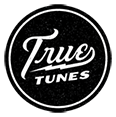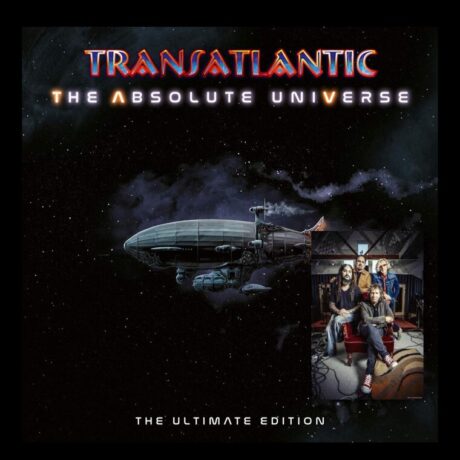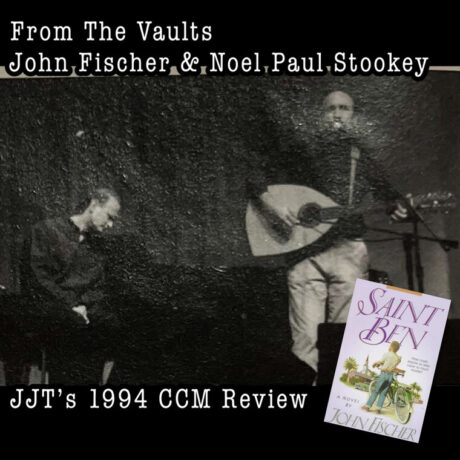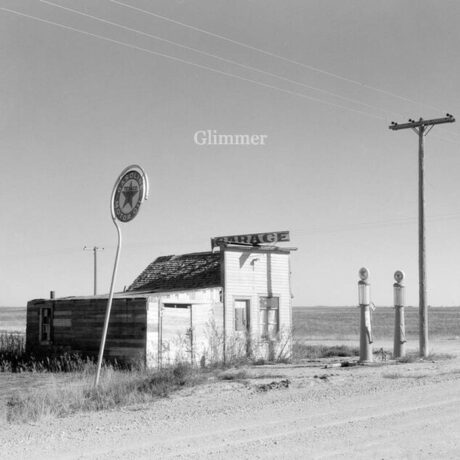Transatlantic’s Ultimate Universe Defies Trends and Gravity
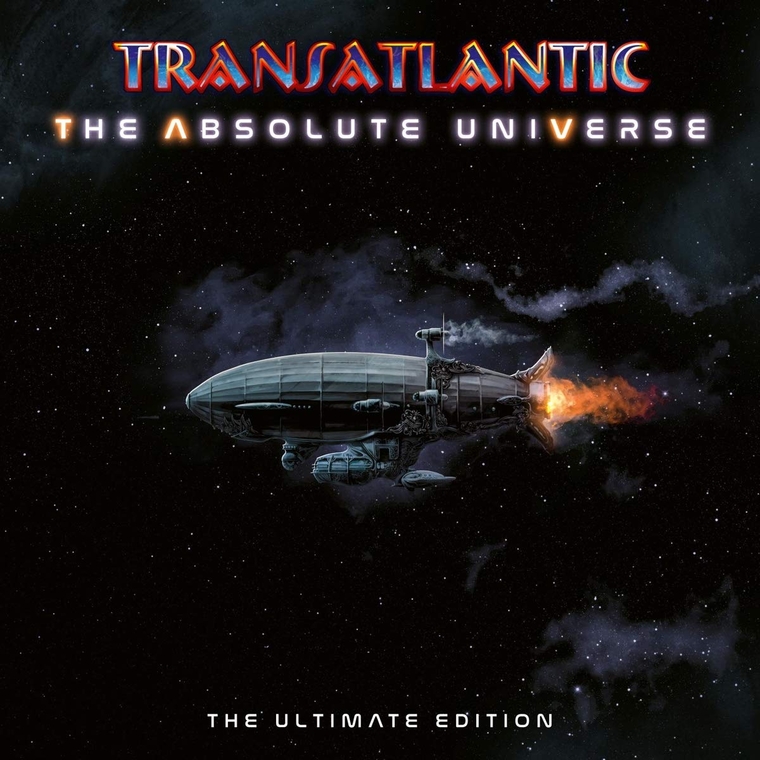
The Absolute Universe, (Ultimate Edition)
Transatlantic, Sony/InsideOut Music
By Mark Hollingsworth
(A Note From JJT: We talk a lot about listening to better music, and listening to music better here at True Tunes – and one of the most common themes I encounter when I am speaking with younger artists and aspiring songwriters is the increasing challenge it is to make a living making music in today’s creative economy. Now that so many perceive music as a free commodity, how are artists going to survive? One answer is for artists to create the kind of work that fans will gladly choose to pay for. However, as pop music becomes increasingly inexpensive to make – and sounds like it – are artists chasing their creative shadows right down the drain? There are exceptions to the trends, though, and we are going to seek to tell those stories here. We have tapped our long-time friend Mark Hollingsworth to review the latest project from progressive rock supergroup Transatlantic – both because the record itself is worth consideration and because the genre itself may be a bright spot worth considering by young artists looking for inspiration. In this “free music” economy, Transatlantic – a band with no hits – just released a $125 album full of rich, complicated, spiritually charged music – and topped the charts as a result.)
As an enthusiastic student of the bi-continental supergroup Transatlantic (two members are from North America, two from Europe,) I’ve often referred to their music as “soulful, progressive rock.” These proficient players share a love for melodies and themes that weave together layers and variations which are not concerned with pop conventions or limitations. It’s heady, sure, but their complex chops are full of heart.
While the members may not be household names to the casual rock fan, these four uber-talents are well-known in the progressive rock realm. With Americans Neal Morse (ex-Spock’s Beard, Flying Colors, Neal Morse Band) on keys/vocals and Mike Portnoy (ex-Dream Theater, Winery Dogs, Sons of Apollo, Liquid Tension Experiment, Flying Colors, and Neal Morse Band on drums/vocals), joining forces with Swede Roine Stolt (Flower Kings, Jon Anderson, and Steve Hackett bands) on guitars/keys/vocals, and England’s Pete Trewavas (Marillion) on bass/vocals, the combination of their considerable writing, arranging, and production skills is truly epic.

There have been only five TA albums and tours in 21 years. But when they do hit the stage, the creative juices flow freely. Thus, their albums are full of myriad styles that segue beautifully from one composition to another, often revisiting themes with multiple variations in keys and tempos, with underlying time changes and meters interspersed for good measure.
But on The Absolute Universe, the boys created so much that it needed to expand across two full CDs. After their initial writing/recording session in Stolt’s Nordic home in the fall of 2019, the band seemed pleased with the volume of close to 100 minutes of music. However, when they all returned to their respective lands, Morse began thinking that it was all a bit too much and sent out an edited version (with some amendments) of 60 minutes for his bandmates to consider. The group was torn as to which version they liked better. Portnoy, who has always maintained that with TA music, “more is never enough,” proposed they release BOTH versions simultaneously. To add to the extra work, everyone agreed there needed to be different lyrics on some of the songs, varied arrangements and lead singers, diverse instrumental passages, and even separate mixes. The adjustments took up much of their time throughout the pandemic year of 2020. Seeing how all of this came together, especially when mixing genius Rich Mouser had to sort out all the elements and make it sound so compelling is enough to make one’s head spin.
The lyrics explore an individual searching for meaning in a confusing world. The themes include wrestling with aspects of the pandemic, political turmoil, and longing for spiritual reassurance in the midst of it all. “Looking for the Light” opens with an ominous riff in which Portnoy snarls contempt for individualism that leads to blinding insensitivity as it references two thinkers as disparate as David Bowie and Ayn Rand:
Summer came, and winter’s gone
Your sun will set before too long
Everyone’s got a secret disguise
You thought you were the Bowie Nazz
Your Howard Roark’s a sorry spaz
You rip off even songs you despise
The first instrumental passage highlights Trewavas’ punchy bass playing, which at times lopes easily and other times charges forward, buoyed by Mike’s intense percussive attack. Over the top, Morse plays Hammond B3 stylings that would make Rod Argent proud. And throughout, it keeps circling back to the solid melodic hook (a Transatlantic staple) that moors every composition creating the variations on so many themes memorable with repeated spins.
“Owl Howl” opens with a Jethro Tull-like motif, leading into Roine Stolt’s mysterious, strangely alluring voice contemplating the other side of the coin as our protagonist wrestles with his inner shadows:
I’ve been looking for remedies
I have looked for some sympathy
Stillborn in the land of loss
Lost within and without a cross
The instrumental passage is an ode to King Crimson’s “Starless and Bible Black,” where Neal channels some creepy Keith Emerson-like synth work. Portnoy works every piece of his maxed drum arsenal, and Pete pushes the low-end urgency as they raise the key changes with each measure.
“Love Made A Way” closes all of the versions of the album, as our wanderer is drawn toward a peace that can only come from divine love.
Where were you when I was all but over?
Looking at the wreckage of my life
Was your arm not long enough to grab ahold?
Or were you right there with me all the time?
Morse’s pleadings propel the finale with ascending majesty added by Roine’s expressive guitar runs. His nods to Jeff Beck and David Gilmour add immensely to the soulfulness of it all. The ultimate resolve unfolds with what one might call “the ever-so-satisfying Stravinsky chord” from the illustrious composer’s “The Rite of Spring.” A 150 piece orchestra could not pull this off with any more grandeur.
As all good “prog” should do, this music seeks to take the listener on a journey. It is best enjoyed with headphones and undivided attention. If you allow yourself to enter in, you may find yourself swept up in an exotic ride in much the same way Genesis, Yes, Kansas, ELP, and Focus did back in the 70s.
# # #
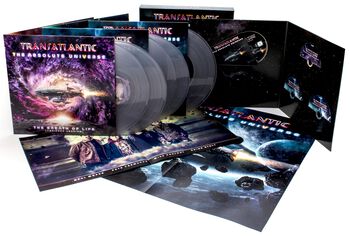
ED: The entire physical version of The Absolute Universe, (Ultimate Edition) comes on three CDs, one BluRay, five vinyl LPs, a beautiful sixteen-page booklet with every lyric, extensive notes, dozens of photos and other artwork, and a large poster with the two album covers on either side. Despite the $125 price tag, and with all of the material available for streaming, the collection debuted at #2 on England and Sweden album charts; #3 in Germany and Switzerland; #4 in Holland; #7 in Austria: and #5 in the U.S. on the Top New Artist Chart; and topped every Prog Rock sales chart around the globe. Word on the street is that slimmed-down renditions will be available in various formats soon.
